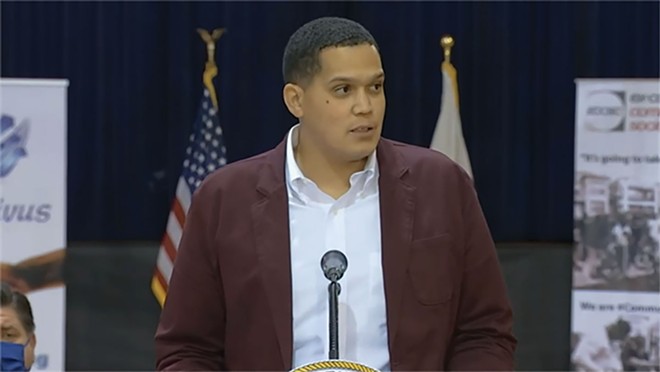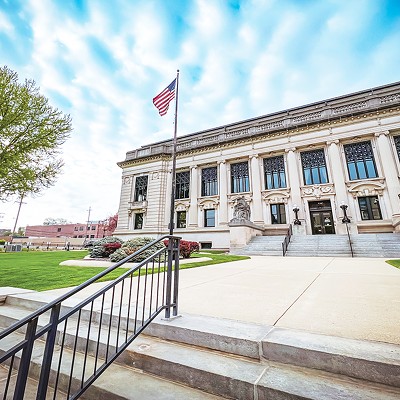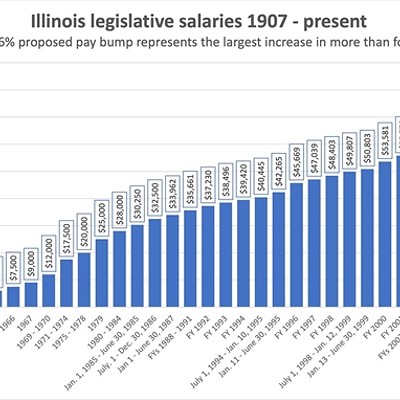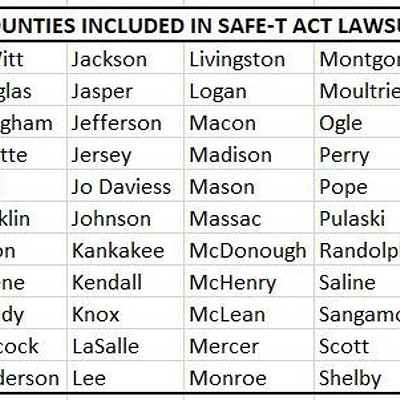
A state program aiming to take a "comprehensive approach to ending Illinois' firearms violence epidemic" will be expanded under a law signed Dec. 10 by Gov. JB Pritzker.
The Reimagine Public Safety Act became law in June, but the expansion signed Friday clarifies guidelines in the original bill and gives the Illinois Department of Human Services and a newly created Office of Firearm Violence Prevention greater grant-making flexibility.
The crux of the RPSA is that it creates the Office of Firearm Violence Prevention to coordinate violence prevention efforts and give grants to on-the-ground community organizations that know how and where intervention is needed in the state's most violent communities.
Heading that office is Chris Patterson, who was appointed by Pritzker as assistant secretary for violence prevention at IDHS.
"We will work hand-in-hand, individually and collectively, to address the violence on our streets and invest in addressing the underlying root causes that cause so much despair: too much addiction, too little mental health and too few opportunities," Patterson said Friday at a Chicago news conference.
The contracted organizations are to focus on programs such as youth intervention services, violence interruption and trauma treatment.
Pritzker said applications are now open for groups that can help train community organizations that will deliver evidence-based violence interruption and prevention services.
A notice of funding opportunity is available at https://www.dhs.state.il.us/page.aspx?item=138882.
This year's budget includes $50 million for programs defined in the act, and the governor said he'll work with the General Assembly to include another $100 million in state funding in the budget for each of the next two years.
"Today, the legislation that I'm signing will advance our commitment to make that unprecedented investment in public safety, utilize data to inform where help is most needed, address both immediate needs and systemic change to reduce gun violence and, most importantly, reach even more communities that have historically been left out and left behind," Pritzker said at the news conference.
In November, Pritzker signed an executive order classifying gun violence as a public health crisis and expediting implementation of the Reimagine Public Safety Act.
The bill was backed in the House and Senate by a pair of Chicago Democrats, Rep. Justin Slaughter and Sen. Robert Peters. Both have been active in some of the major criminal justice overhauls in recent years, including a bill that eliminates cash bail in Illinois beginning in 2023.
"Leaders and members in our communities have been yelling for help for years, and at one point they were met with the deafening silence of a budget impasse and institutions and services closed," Peters said. "For years, our approach to these struggles was built off of a system that I would call a form of big government gone bad called mass incarceration."
The RPSA requires that the Office of Firearm Violence Prevention identify the 10 most violent Chicago neighborhoods with the first consideration being the number of shootings per capita. Then it is required to identify another seven of the most violent communities, based on the number of victims.
The language in the follow-up bill signed Friday also allows the office to identify another five Chicago communities for grants as well.
For neighborhoods outside of Chicago that have a population of more than 35,000, the office is tasked with identifying 10 of the most violent communities based on the same parameters. After those are identified, the office can direct grants to up to five more neighborhoods.
The office is tasked with creating a formula for grant distribution and working with advisory councils in the identified communities. The bill states that "when possible" grant amounts should be of at least $300,000 per youth development organization.
Slaughter said the problems facing Chicago and other communities in Illinois are similar to those nationwide.
"This all begins with acknowledging that, unfortunately, systemic racism does exist and understanding that our criminal justice system adversely and disproportionately impacts underserved communities and people of color," he said.
Slaughter said the SAFE-T Act, which is the criminal justice reform bill passed in January's lame duck session, contained two prongs of a three-pronged approach to criminal justice reforms backed by the Illinois Legislative Black Caucus – police and sentencing reforms.
The Reimagine Public Safety Act represents the third prong, which is violence and crime prevention.
"The Reimagine Public Safety Act signifies a different and new approach, one that is not necessarily soft or hard on crime, but rather smart on crime," he said.
The bill signed Friday, House Bill 2791, passed the Senate 52-0 and the House 71-41.
Republicans tried, to no avail, to push a series of sentence enhancements and other strict-on-crime criminal justice measures that ultimately failed to receive a hearing in either chamber.
Contact Jerry Nowicki at [email protected].



















